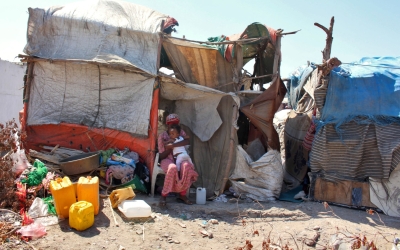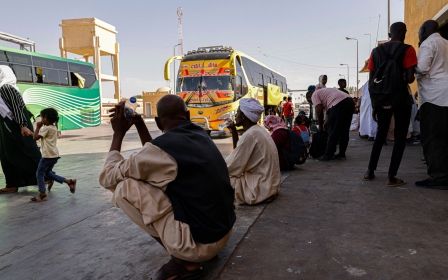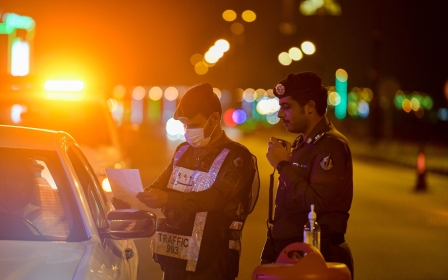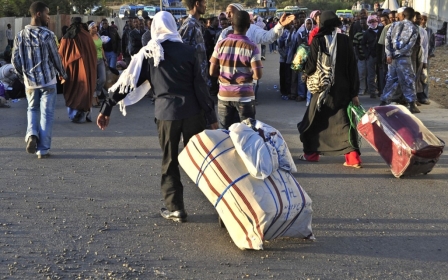Saudi Arabia forces accused of killing hundreds of Ethiopians along Yemen border
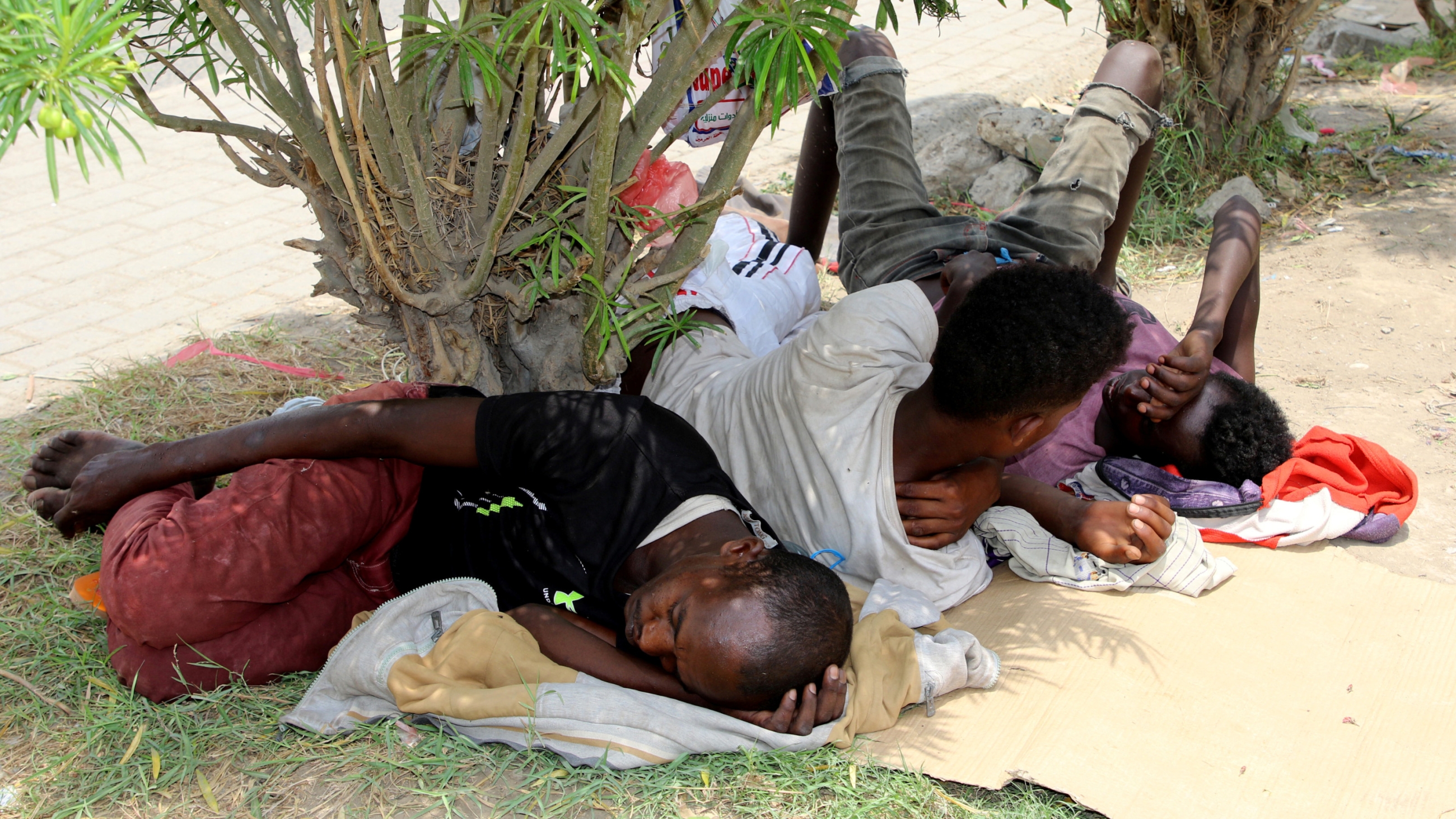
Saudi Arabian forces have been accused of killing hundreds of Ethiopians along the border with Yemen in a "widespread and systematic pattern of attacks" that may amount to crimes against humanity.
Human Rights Watch (HRW) said in a report released early on Monday that Saudi border guards shot people attempting to cross the border at close range, and in some cases asked them which of their limbs they would prefer to be shot.
People who attempted the journey described seeing "women, men and children's bodies strewn across the mountainous landscape severely injured, already dead and dismembered", according to HRW.
The 73-page report, which is based on witness interviews and analysis of photos, videos and satellite imagery going back to 2021, builds on a mounting body of evidence of serious human rights violations along the Saudi Arabia-Yemen border.
Last week, MEE reported that Yemenis were braving bullets and explosive weapons at the Saudi border in pursuit of work in the kingdom.
New MEE newsletter: Jerusalem Dispatch
Sign up to get the latest insights and analysis on Israel-Palestine, alongside Turkey Unpacked and other MEE newsletters
Yemen, the Arab world's poorest country, has been ravaged by conflict since 2014 between Houthi rebels who control most of the north and Yemeni factions in the south who are backed by Saudi Arabia and the United Arab Emirates.
"I saw people killed in a way I have never imagined. I saw 30 killed people on the spot," Monday's report quoted Hamdiya, a 14-year-old girl, as saying.
After the mass killing, she reportedly threw herself under a rock and slept. "I could feel people sleeping around me," she said. "I realised what I thought were people sleeping around me were actually dead bodies."
Last month, the Mixed Migration Centre (MMC) said Ethiopian migrant workers were being "directly and deliberately" killed by Saudi security officials on a "daily basis".
Bram Frouws, the director of MMC, told MEE the situation is ongoing and critical.
'Saudi officials are killing hundreds of migrants and asylum seekers in this remote border area'
- Nadia Hardman, HRW
"Sexual abuse, including rape, is widespread," he said.
"There is physical violence, torture, arbitrary detention - all [witnesses] speak of being shot at, with people dying around them at the northern border between Saudi Arabia and Yemen."
According to MMC, no effective investigations have been launched into the killings or abuses so far.
"A formal and independent investigation is exactly what is needed," says Frouws.
"These are extremely worrying and serious reports... an investigation is needed to get to the bottom of this and hold the perpetrators accountable. We owe it to the victims."
Saudi Arabia previously responded to the allegations by MMC, through their permanent mission in Geneva, by refuting them and stating that they did not find any evidence which shows flagrant violations of the rights of life.
HRW said it contacted several official Saudi bodies about their report, including the Ministry of Defense.
Transit point
In one alleged incident, interviewees said Saudi border guards fired explosive weapons on a group of people who were preparing to re-enter Yemen having just been released from Saudi detention.
Munira, a 20-year-old-survivor, said it happened after the group was put on a minibus heading back towards the border.
"When they released us, they created a kind of chaos; they screamed at us to get out of the car and get away," she said.
"When we were one kilometre away, the border guards could see us. We were resting together after running a lot... and that's when they fired mortars on our group. Directly at us.
"There were 20 in our group and only 10 survived. Some of the mortars hit the rocks and then the [fragments of the] rock hit us... The weapon looks like a rocket launcher, it had six 'mouths', six holes from where they fire and it was fired from the back of a vehicle – it fires several at the same time. They fired on us like rain."
The killings and attacks reportedly took place on the route between al-Jawf and Sadah in Yemen, a region which is controlled by Houthis. Attacks have also been taking place in the Jizan province of Saudi Arabia.
The border has become a major transit point for people between the Horn of Africa and Saudi Arabia, primarily from Ethiopia.
Many refugees and migrants rely on networks of traffickers to help them travel along the route, leaving them vulnerable to violence.
HRW said that while attacks on Ethiopians along the border are not new, the recent violence "appear[s] to be a deliberate escalation in both the number and manner of targeted killings".
In October, several UN special rapporteurs highlighted the killings in a letter, describing "gross human rights violations against migrants".
Data compiled by the UN states that 30 percent of victims were reportedly women and that seven percent were children.
The letter also stated that some of the abuses included torture, arbitrary detention, trafficking and sexual abuse.
Nadia Hardman, the HRW report's lead author, said that "Saudi officials are killing hundreds of migrants and asylum seekers in this remote border area out of view of the rest of the world".
"Saudi border guards knew or should have known they were firing on unarmed civilians," Hardman added.
Middle East Eye delivers independent and unrivalled coverage and analysis of the Middle East, North Africa and beyond. To learn more about republishing this content and the associated fees, please fill out this form. More about MEE can be found here.


